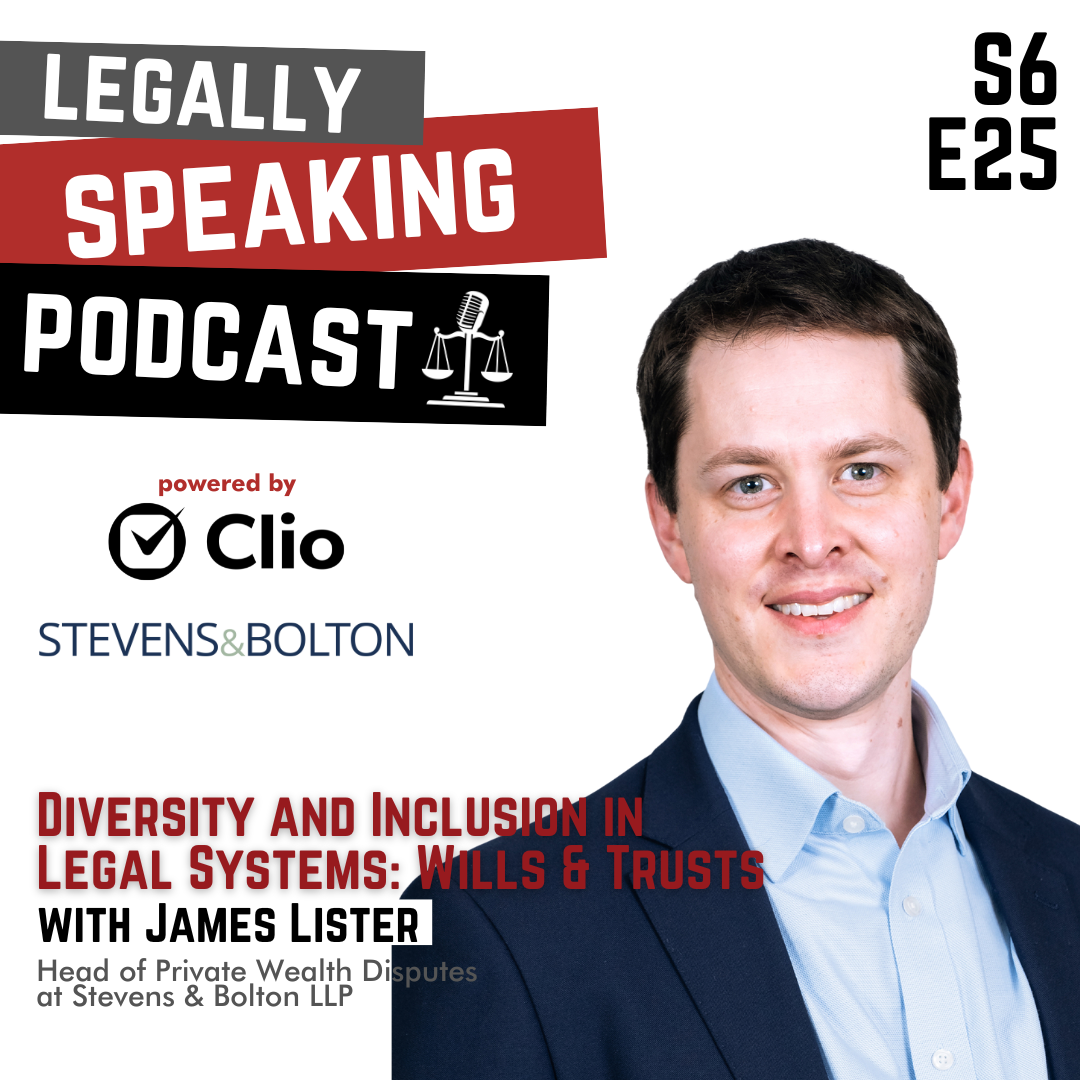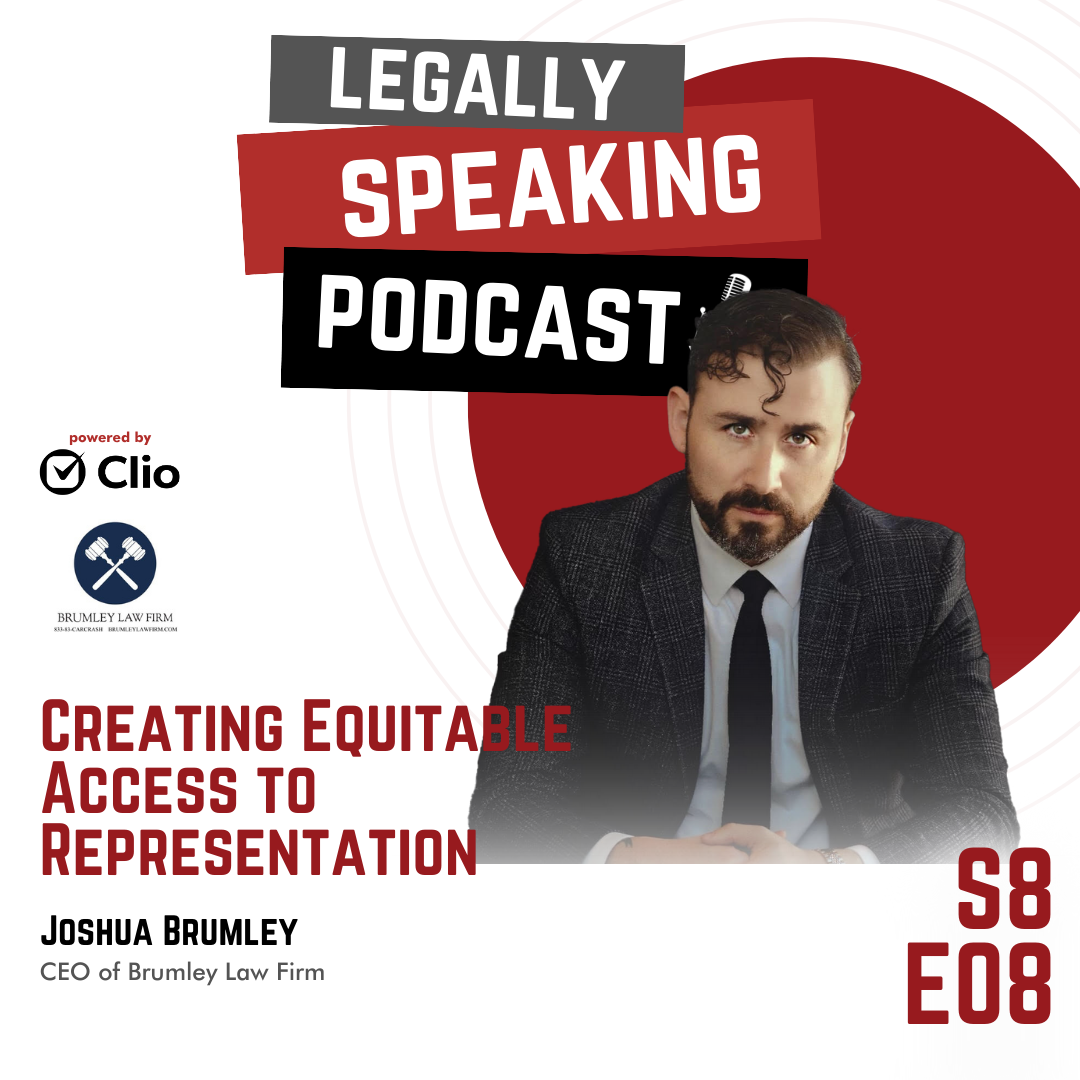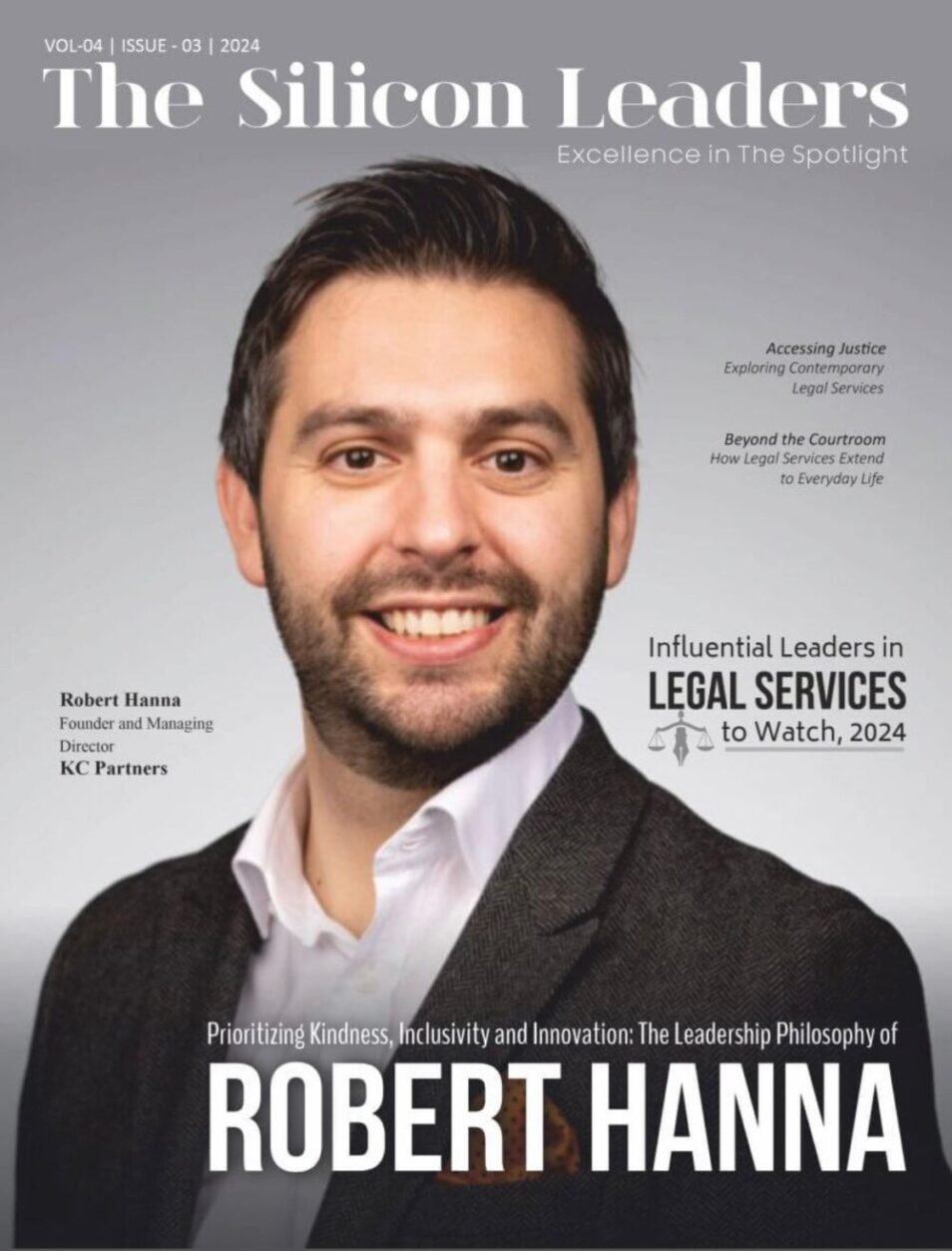
Innovations & Legal Careers – Mitch Kowalski – S8E10
In this episode, your host, Rob Hanna, was joined by Mitch Kowalski, the Senior Commercial Legal

Diversity and inclusion in the legal system need not just an awareness of the differences but also the capacity to change one’s own conduct in order to connect with others on an equal footing.
This week, we’re super excited to be chatting with James Lister, head of private wealth disputes and a partner at Stevens-Bolton LLP. James advises on claims by or involving estates and trusts, most commonly involving high-net-worth and ultra-high-net-worth individuals. Prior to his legal profession, he studied music at the University of Nottingham before studying law.
James was shortlisted as “Partner of the Year” at the Citywealth Future Leaders Awards 2019 and has been named as one of Legal Week’s Private Client Global Elite “Ones to Watch” for the last four years. James has also been shortlisted in the “Litigation Rising Star” category at the British Legal awards 2020. And ranked as a Tier 1 individual in the Chambers HNW directory 2020, and as a “Next Generation Partner” in the Legal 500.
𝐒𝐨, 𝐰𝐡𝐲 𝐬𝐡𝐨𝐮𝐥𝐝 𝐲𝐨𝐮 𝐛𝐞 𝐥𝐢𝐬𝐭𝐞𝐧𝐢𝐧𝐠 𝐢𝐧?
You can catch Rob and James Lister talking about:
00:08 Rob Hanna:
Welcome to the Legally Speaking Podcast. You are now listening to Season 6 of the show. I’m your host Rob Hanna. This week I’m delighted to be joined by James Lister. James is the Head of Private Wealth Disputes and a Partner at Stevens & Bolton LLP. He studied music at the University of Nottingham before studying law. James was a Senior Associate at Charles Russell Speechlys, before joining Stevens & Bolton. James advises on claims involving estates, trusts, high-net-worth individuals and more. He has experience advising on claims related family court and divorce. James was shortlisted Partner of the Year at Citywealth Future Leader Awards in 2019 and Litigation Rising Star at the British Legal Awards 2020. So a very, very warm welcome, James.
00:56 James Lister:
Thanks very much indeed, that makes me sound a lot better than I actually am. Thank you very much for that intro, if I might decrypt all of that, for my CV, thank you.
01:07 Rob Hanna:
Absolutely. Well, it’s all true. So and that’s why you’re sat in the hot seat today, before we dive into all your amazing projects, experiences and what you’re doing for the legal community. We do have an icebreaker question here on the show, which is on a scale of 1 to 10, 10 being very real, what would you rate the hit TV series suits, in terms of reality?
01:29 James Lister:
I’ve been thinking about this since I got the question. I think 6 is the right answer. And I’ll tell you why. It’s obviously primarily 6 has got some lore in it. But everyone who watches it will know that’s not really what it’s about. And actually, because I’m a litigator and I know that cases get sorted out quite a lot of the time, not just on their legal merits but by on the stuff around the sides. And particularly, we’ll get on to this, but particularly the area I work in which involves private clients and their disputes. Actually a lot of the time it’s the non-legal stuff that fixes disputes. And Harvey, Mike and everyone else spend a lot of their time working out what is the non-legal, either commercial or other pressure point that they can bring to bear to get them where they want to get to. And actually, quite a lot of litigation, particularly in my space is quite like that. So I’m going for a 6 out of 10.
02:21 Rob Hanna:
Do you what I feel like I say to every guest that’s a really good answer and description. But I think that’s probably 1 of the best, I genuinely do. I think it’s a fair rating. And the way you described it from a non-legal aspect and that part of the show, which obviously they dramatise and they make it into a good show. There’s some merit in that. So no, I think that’s, that’s well said. And with that, we’ll move swiftly on to talk more about you. But I always like to start at the beginning. So would you mind telling our listeners a bit about your background and journey?
02:49 James Lister:
So as you said at the beginning, I’m actually a musician. Not really a lawyer at all. I studied music at university and went on to do a Master’s actually in, in, in music after that, and had by that point, met my wife or not, not then wife, but I had met the person who was going to become my wife. And I had quite a candid conversation with her about what our lives together were going to look like. And I was instructed, but 2 musicians was likely to make for quite a tough domestic life and that 1 of us might want to go and seek something slightly better remunerated than one’s average jobbing musician. And that saw me at law school about 9 months later. I’d love to say I had always had a calling to represent the discriminated against in this country but I’m afraid that isn’t completely the candid answer.
03:51 Rob Hanna:
Fair enough. Fair enough. Well we like the honest answer and reality here, on the show, but you did study, you know, music at the University of Nottingham so we can’t take that away from you. And obviously it didn’t sound like there’s a natural interest to, to move into the law originally, but where did some sort of enthusiasm or interest for the legal spark from, from your side?
04:11 James Lister:
So there’s, there’s 2 things both of which kind of fed into the job that I now do. 1 is, I love a good argument. And I’ve always enjoyed a good argument, even, even at university when the arguments were about the ethics of particular music production, or what can be read into particular bits of Beethoven, for example, I always liked an argument, about the meaning of something or the interpretation of something. But I also and the musician bit is, is central to this. I also just, just really enjoy working with people. And actually, once I worked out there getting into the law, assuming that I was going to do litigation, might enable me not only to deal with run arguments for a living, but also get into people’s heads, get into understanding what makes them tick, get into actually ideally most days of the week trying to make their lives a little bit better, actually that it was quite an easy transition to, to make. I was, I was never a corporate law, bod. You know the idea of buying and selling massive businesses for billions of pounds and makes loads of this profession tick, it never did it for me. It was always about arguments and people.
05:19 Rob Hanna:
There we go, 2 extremes, arguing with people, there we go, the 2 things you love bringing them together, some might say. So you are now obviously at Partner of Stevens & Bolton, you’ve obviously been very successful, you’ve progressed, tell us about your areas that you specialise in now.
05:34 James Lister:
So my slightly grandiose title is Head of Private Wealth Disputes, quite rightly, the average person on the street is not going to the first idea what that might mean. It’s a sort of badge for dealing with private individual disputes, most of which tend to stem from people’s relationships with each other. So wills, trusts, that, that sort of thing. And indeed where those holding structures come into the family domain from a divorce point of view or a children point of view. So, I don’t do divorce. I don’t do any matrimonial law myself. I do the trusts and estates disputes side of all sorts of different work. So that’s granny’s will. It’s the family trust that has been paying for everyone’s education from Guernsey for the last 15 years. It’s you know some really awful things that we see happen every day of in terms of what people are prepared to do to each other for, for money. We see a lot of people equating money and affection as the same thing. And, it, by proxy makes me quite cynical, in terms of how people are prepared to behave in the interest of making their lives a little bit better. But yeah, so that, that in a nutshell, is, is the work type.
06:52 Rob Hanna:
Yeah, because it is quite broad. And, you know, you’ve got experience across, you know, disputes, pensions, estates, as you mentioned, trusts, family court jurisdiction, you name it, and, and sort of moving that on then, you know, the courts have used gender for generations to navigate wills and trusts. So would you mind again just outlining how courts have used gender and give us a bit more background to that?
07:15 James Lister:
Yeah, so this is, this is interesting. And we should get into this early about the difference between sex and gender. So we have we still have always worked in a, in a binary, what’s actually a binary sex system. By sex, we mean birth sex, gender is, is a social construct, effectively, of our expectations about what the birth sex of an individual might mean for them. And to the extent it ever needed to be legislated about, Parliament has legislated pretty clearly that that is the foundation of our legal system as far as sex is concerned. We have 2 recognised sexes, and you’re either 1 or the other. And that is still the legal position. And the courts insofar as they are called on to implement what Parliament tells them to do about that, uphold that. And I’ve been upholding that until as recently as last year, they are, the courts are very clear that as far as the current legal system of our country is concerned, we have 2 legal genders, 2 sexes, and that is the way that it will stay until Parliament decides otherwise.
08:21 Rob Hanna:
Okay, yeah, that’s interesting. And thank you for sort of making that, that clarification. And again, just so people get an understanding, you know, you’ve got a lot of experience dealing with, with all sorts of things connected to your practice areas, but what issues have you seen or experienced where gender and pronouns have impacted the administration if you like of estates and wills? Give us some examples.
08:45 James Lister:
So 1 of the nice things about this as a subject area is that the examples are really thin on the ground. There is not a massive glut of litigation about this going on. But it’s, it’s my view, and in the view of many others that there is a real risk that we will get into that territory. And that’s for a simple reason, from a society point of view and otherwise, we’ve got very used to using people’s gender as a defining characteristic. It’s not, it’s not difficult to construct a will that says my son Bob, my daughter Julie, and 9 times out of 10 most people won’t think twice about applying that defining characteristic to the person that they mean to identify. But the problem, there is a problem in doing it that way in itself, that if, if at the point at which you pass away, my daughter Julie, is actually my son Julian, have you correctly identified that person with sufficient certainty for them to receive what you wanted them to receive, for instance. But that gets a lot more complicated if you’ve not actually been specific about who you want to receive some money from your trust or your will or whatever it is. So a great example would be I’d like to split my estate, two thirds between my sons and a third to my daughters. Now when you created that division in your will, you might have thought that was nice and clear, because you thought you knew who your sons were and who your daughters were. But if 1 of your daughters decided that they wanted to identify as a son, as a man and transitioned, you’ve then completely changed what that person is going to receive and you’ve done that because you’ve used their gender as a defining characteristic. And really the premise of me talking about any of this at all is, that I don’t think we need to do that. I think there are much better ways of identifying who people are than using their gender as that kind of characteristic. It’s not, it’s not a million miles away from using somebody’s skin colour to identify them. It’s a very similar boat of defining characteristics.
10:47 Rob Hanna:
Yeah, and it’s fascinating, because like you say, you know, 1 of my mentors always says to me, specific is terrific, you know, the more specific you can be, you know, the far less complicated things or ambiguity or uncertainty to factor change. And I guess that’s why they pay the lawyers the, the big bucks, right, to ensure that there is specificity in those, in those documents. Let’s talk about the law then because it is a legal show, you know, why is there this, you know, the imminent need to overhaul our legal system based on what we’re discussing?
11:17 James Lister:
So whether I would put it as high as an imminent need to overhaul or not, I don’t know. But the, what’s interesting about this is that we know from the European Court of Human Rights that gender identity is, is a protected characteristic for us in the UK. And for as long as we are, under our Human Rights Act, notionally required to implement that convention, post Brexit, that is still the position for now. It sits in exactly the same pool of characteristics as race, as sexuality, as disability, that the law in this country is meant to uphold people’s rights about those protected characteristics. And it’s unlawful to discriminate against anybody on the basis of 1 of those characteristics. It’s, it’s not at all controversial for me to suggest that somebody shouldn’t be discriminated against because of a particular disability, or because of the colour of their skin. But actually the European Court of Human Rights says gender identity sits in exactly the same pool as that, why that is significant for us actually, this is incredibly timely time for us to be doing this because the ONS has released the UK census data about gender identity from the census in 2021. And we know that of the people who answered that question, which was in the census about whether they identified as their birth sex, 6% didn’t answer at all, the half a percent of the people who answered said they did not identify as their birth sex. That’s about just, just over a quarter of a million people. Of those, the ONS data tells us that about 100,000 are either trans men or women. So on the face of it, people who might, might be happy with the current system that you can either be man or a woman because they would want to transition from 1 to the other. But that leaves a pool of 150,000 odd other people who either didn’t answer the question at all about how they identified or said, I’m not a trans man or a trans woman, I’m non binary, or I identify in a different category. And the question and this is where I say, this might get political, but the question is if you’re looking at a dataset of 100,000 people who say a binary gender legal system doesn’t work for me, doesn’t respect who I am, how I feel about myself, is that enough? What, how big does that number have to be? Does it need to be 100,000? Does it need to be half a million? Does it need to be 10 million before those people’s rights need protecting in a different way?
13:49 Rob Hanna:
Yeah, no, you’re absolutely right. And I think there’s some, some great thoughts. And this is what I love about hosting the show. There’s so many different, you know, factors to the law. And you know, things as, as, as time goes by and I guess. Time for short break from the show. Are you looking for a way to get your firm working more efficiently and profitably, while ensuring a better work life balance for your team? Well, if you haven’t considered our sponsor Clio, I’m here to strongly recommend that you do. I absolutely love working with Clio. Not only is it the world’s leading legal practice management and legal client relationship management software, it also has a really solid core mission, to transform the legal experience for all. Something I personally support. What sets Clio apart for me, it’s their dedication to customer success and support. There are lots of legal software’s out there, but I know from talking to Clio users that their support offering is miles ahead of the rest with their 24-5 availability by email, in app chat and over the phone. Yes, you can actually call in and speak to someone. Clio is also the G2 Crowd leader in legal practice management in comparison to 130 legal practice management software’s and has been for the last 14 consecutive quarters. G2 Crowd is the world’s leading business solutions review website. You can check Clio’s full list of features and pricing at www dot Clio dot com forward slash Legally dash Speaking. That’s www dot C L I O dot com forward slash Legally dash Speaking. Now back to the show. That sort of put you on the spot a little bit, you know, how far does the legal system need to develop to reflect the realities of you know, the 21st century and you know the world that we’re living in today?
15:54 James Lister:
I think the legal system does need to change. And I think part of, part of the rationale for that, I don’t suggest that the UK has ever been swayed by what happens in other countries. But, there are some countries that we would recognise as proper, serious democracies, liberal democracies, that are way ahead of where the UK is on this, even in relation to simple things, a lot of the things that campaigners in this kind of space get exercised about are things like passports. So, there’s no ability to have a third gender on a UK passport because that doesn’t match our binary gender legal system, that Australia, the US, Denmark, Canada, New Zealand have all worked out how to do that. So you’re able to, be gender neutral on your passport in all of those countries. Those aren’t countries that you would immediately look at and go, oh gosh well they’re so liberal, they probably doing their own thing, or they’re such a law unto themselves, that they’ve just been able to plow their own furrow. Those are countries that we respect internationally, and they have on, on a sort of bigger society level to the 1 in the UK, they have managed to find a way. And I think, I think we should do better. What surprised me out of the data from the census, if that number is 100,000 people, I think that must be enough for somebody to want to make sure that our legal system reflects the needs and identity of those people. And it, that, that may be by doing some really simple things like, allowing the genders on a passport. But, my personal view is that we have got to a stage where that is something that our, our MPs should be looking at in a way that they are not looking at the minute.
17:31 Rob Hanna:
Yeah, no, this is interesting, isn’t it, because there’s definitely conversations that need to be had around this. And you mentioned some sort of statistics before and I think, you know, we’ve seen I think, you know, prior to the show recent reports, things indicated as many as around 4% Gen Z did not identify, identify a particular gender. And you know, what advice, what would be your advice to another lawyer, legal professional may be listening to this, who may be dealing with a client who does not identify as a specific gender, and whose case involves, let’s just say, wills and estates?
18:04 James Lister:
I think, from a lifetime planning point of view, this is, this should be easy. It involves us doing the very thing that we as lawyers are paid to do and talking to our clients directly about what it is they want to achieve. And what when I’ve sort of talked about this before I’ve asked roomfuls of people whose job it is to advise private clients. If you said to your client there’s a chance that by doing things this way, you’re not going to get the result you want. There’s not a paying client in the world that’s going to turn around and go oh yeah I’m completely happy with that uncertainty, because that’s what clients are fundamentally paying us to do, whether it’s litigation or just wills, structuring, that sort of thing. They want certainty, they want to know that what they’re trying to construct is actually going to get to the endpoint they want it to get to. And my advice to them is actually the more direct you can be with your clients and the fewer assumptions you make, about your client’s family, or whatever else it is, the easier your job is going to be. If you suggested to anyone creating some very straightforward will, that there was an easy way to make sure the money got to where ever they wanted it to get to, and all you needed to do was take out words like my son or my daughter, they’re going to do that. And it’s really basic. But actually in doing that you have, unwittingly, from their point of view, taken out a whole series of future potential problems.
19:17 Rob Hanna:
So almost simplification is the solution sometimes. Yeah, that’s a great way of kind of thinking about it. Because I think sometimes from my experience of dealing with lawyers, and of course, to be the wordsmith, to be the wisdom, you know, the experts, but sometimes putting that into simplicity, is the wisdom, that is the sort of the prowess that you know, people are looking for. So I think it’s such a great way that you, you articulated that. So, again, let’s talk high level, because you know, there’s a lot of different directions we can go with this. But you know, what are the risks there to courts and individuals? Should the law not be brought up to date and evolve beyond the binary? So we’re going
19:57 James Lister:
So we’re going, we’re going to start running into difficulty I think, if and when, this non binary idea is adopted by other countries. The, the sort of obvious example is, is let’s take somebody who dies in Australia, for example, where they might have an ability to deal with their estate differently to how the UK might work. You run the risk if our legislation isn’t, can’t, can’t find a way of reciprocating the Australian arrangements or the US arrangements, that actually the interpretation of those documents is going to be different between 2 countries that on the face of it should understand each other pretty well. We should be talking the same language. And the more rigidity we have and the more flexibility that other countries might have, the more the risk of us finding what we call a conflict of laws coming up, goes up a bit. A slightly more extreme example would be, if you looked at a Middle Eastern family for example, who expected their estate to be dealt with under Sharia principles, which require the estate to be administered in accordance with the gender of the people receiving the inheritance. In most cases, if you had people in that beneficial class who had either transitioned or were non binary, you’ve created a conflict immediately about how you should deal with the administration of that structure, because there’s going to be uncertainty about, who belongs where, and who you, who you should listen to about who belongs where. And I think from, from the UK’s point of view, we want to avoid that as much as possible. We don’t want to be the nation who can’t implement foreign planning because we’ve spent 100s and 100s of years of being what we’re very pleased to call the seat of law. You know we are the preferred jurisdiction of choice for a huge range of disputes, for good reason. We have an amazing court system, we have a fabulous judiciary, we have a really robust rule of law. And I don’t know, personally and professionally, I don’t follow the thinking behind not making the adjustments, not huge adjustments, but the adjustments we might need to make to, to keep that as our standing.
22:09 Rob Hanna:
Yeah, you know, things have to evolve and things need to be, at least reviewed or reconsidered as a sort of minimum. And that kind of brings me to think about lawyers of today, you know, or lawyers that really do want to be happy, well equipped, and well versed, you know, what can they do to ensure they’re using the correct gender and pronouns and any tips or advice?
22:32 James Lister:
I realised I’m now properly a broken record on this, but there’s just no substitute for talking about it. Lawyers are bad for jumping to particular assumptions and conclusions. We still and I, it still happens to and from my firm and loads and loads of others have letters that go out that say dear sirs, there’s no excuse for addressing, particularly if you know you have somebody who is not a sir on the other side, there’s just no excuse for a miss-addressing in that way. We are so far past the point that law firms are a male only domain, it’s just no excuse for that. And that’s not to say that it doesn’t happen on letters all the time. But small adjustments in communication actually can make a big difference, that talking to our clients, talking to the people who were involved in, in a transaction or in a piece of litigation about how they’re happy to be identified is a really good start.
23:28 Rob Hanna:
Yeah, I love that. And I’ve always been taught, you know, little touches are the big touches. Remembering those little things that are personal to someone or something that maybe to make them feel heard, to make them feel like they belonged, feel like they’re valued, those little thing. And that then leads it to relationships, right? If you get those little things right, your level of relationship with your client, that level of trust, as a trusted adviser and a trusted resource and sharing, and all of that goes so much there. So I think it’s absolutely critical. And yeah, in the day that we’re out today deserves, it’s just yeah, then you need to wake up and smell the coffee for law firms that are still doing that. And that’s on the record. And, okay, so as part of your trusted, sorry trusted, trusts and disputes practice, you act for parties in divorce proceedings, we’ve touched on this lightly, but has the family law system already evolved to be more gender inclusive?
24:23 James Lister:
A bit is probably the best I can do on that. So, 1 of the things that really surprised me as I started to get into this is that we’ve been able to legally transition between genders in this country since 2005, which is when the Gender Recognition Act came in. The, it was not possible to change your gender while you were married until 2014, because same sex marriage was not legal in this country. So, you had, if you were in a marriage and wanted to change your legal gender, you had to get divorced first until 2014. We think of ourselves as quite liberal nation, that blows my mind, but to its credit, if we’re saying the family law system has worked out how to do that. And now that is not what’s required, because we’ve got because same sex marriage is allowed in the UK, then yes, the family court system has got a little bit further than everywhere else in working out how it might deal with people who want to transition to being the other gender. They are allowed to at the minute. But otherwise, most of the rest of the court system is still in the same state that we’ve been talking about.
25:29 Rob Hanna:
Yeah, and that’s really interesting. And you’ve given us some cracking examples throughout this. This chat has been really interesting to, to learn more about this, because I think sometimes we can go through living through life and, you know, we like to say, talk about it. That’s why we were very keen to have this conversation and bring light to this discussion because, you know times are changing. And I think it’s important that, you know, people within the law, accept that and, you know, these, these things need to be reconsidered. And I guess that before we look to wrap up sort of famous last words if I like, you know, what advice would you give to those interested in specialising in your zone of genius, you know, the wills, estates, pensions, maybe the future generation of legal professionals who might be advising future clients? What advice would you give to those and any resources that you would recommend?
26:16 James Lister:
I think first and foremost it’s got to be about people, you’ve got to enjoy working with people to be able to do my job, or I think any job that deals with those kinds of things, you’re often dealing with people having what they will classify as big conversations. Now, what happens to their money after they die? How are they going to provide for the rest of their family? What have they been getting up to in their private lives that mean, they need some very complicated arrangements made? Most clients see that as quite a big deal, having that conversation in the first place, and I don’t, it may be sometimes quite low value work across the profession, just sort of putting a will together. But actually we’re, we’re talking to people in what they will consider to be quite a vulnerable state, that only goes up when you’re dealing with somebody, somebody’s death, or a fight about the family state. And you’ve got to really want to spend time with people, some of them in significant states of distress, to be able to do this kind of job. So I think, first and foremost if people are looking at getting into this kind of work, and I mean that on a contentious and non-contentious point of view. They’ve got to want to spend time with people. I have a large network of people who can’t stand the idea of dealing with somebody crying in 1 of their meetings. Know what they want is the finance director of some FTSE 100 company making really good balance sheet-based business decisions, and that floats their boat, and I totally get that. That isn’t what I love about my job. I like the fact that actually I get to understand people’s emotions and get invested in what they’re trying to do. So it’s, it’s people first would be the 1 thing I’d say.
27:51 Rob Hanna:
Yeah, no, that’s such a great point to sort of look to conclude on because you know, it is, it is a people business, you know, that’s what people are, you know, like you say, when, when you instruct a lawyer, there’s a reason typically why you’re instructing a lawyer, and maybe people are in a place of vulnerability or needing some solutions or assistance, and it’s a big decision, and commitment. And I think you’ve articulated today, brilliantly some of the considerations and thoughts that are needed to be having moving, moving forwards as the law and indeed, our modern society moves forward. And so if our listeners, which I’m sure they will, would love to learn more about your journey or Stevens and Bolton, what’s the best way for them to get in contact with you?
28:30 James Lister:
The firm’s website is a decent start. So I’d probably start there. I’m quite a keen LinkedIn-er. So there’s a lot of, quite a lot of content pushed out by the firm, by me, by my team, they’re across a whole range of things. A lot of it, unsurprisingly has to do with disputed wills and that sort of thing. But across the website and the platform as a whole there’s, there’s a lot of good material being pumped out by bits of the firm that don’t just do what I do.
28:55 Rob Hanna:
Good stuff, but definitely check out the website. Definitely make sure you follow James over on LinkedIn. And it just leads me to say thank you so much for coming on the show today. It’s been an absolute pleasure having you on learning more about this. So from all of us on the Legally Speaking Podcast, wishing you lots of continued success with your career practice for now, but for now, over and out. Thank you for listening to this week’s episode. If you liked the content here, why not check out our world leading content and collaboration hub The Legally Speaking Club over on Discord. Go to our website www dot Legally Speaking Podcast dot com for the link to join our community there. Over and out.
You may also tune in on Google Podcasts, Apple Podcasts, Spotify, or wherever you get your podcasts!
Give us a follow on X, Instagram, LinkedIn, TikTok and Youtube.
Finally, support us with BuyMeACoffee.
🎙 Don’t forget to join our Legally Speaking Club Community where we connect with like-minded people, share resources, and continue the conversation from this episode.
Sponsored by Clio – the #1 legal software for clients, cases, billing and more!
💻 www.legallyspeakingpodcast.com
📧 info@legallyspeakingpodcast.com
Disclaimer: All episodes are recorded at certain moments in time and reflect those moments only.

In this episode, your host, Rob Hanna, was joined by Mitch Kowalski, the Senior Commercial Legal

Explore the impact of legal tech in boutique practices with this week’s guest, Éamon Chawke. Éamon

Get an inside look at the world of personal injury law with Joshua Brumley, the CEO

Prioritising Kindness, Inclusivity and Innovation: The Leadership Philosophy of Robert Hanna The article delves into Robert’s

Get an inside look at the London International Disputes Week (LIDW) with this week’s Legally Speaking

By Malcom Trotter, global education and training professional There is evidence that university graduates earn more

*DISCLAIMER* All episodes are recorded at certain moments in time and reflect those moments only. The podcast does not support or associate itself with any inappropriate behaviour or actions that may have occurred after recording.
Website by Virtual Insanity LLC